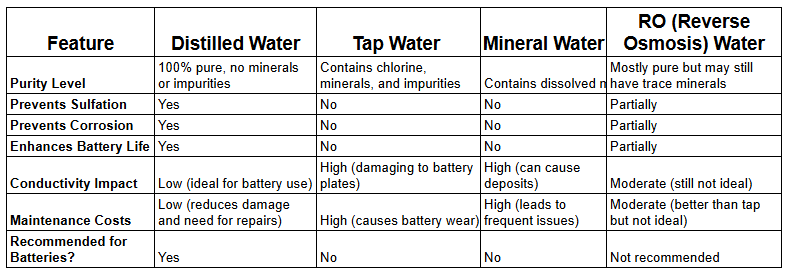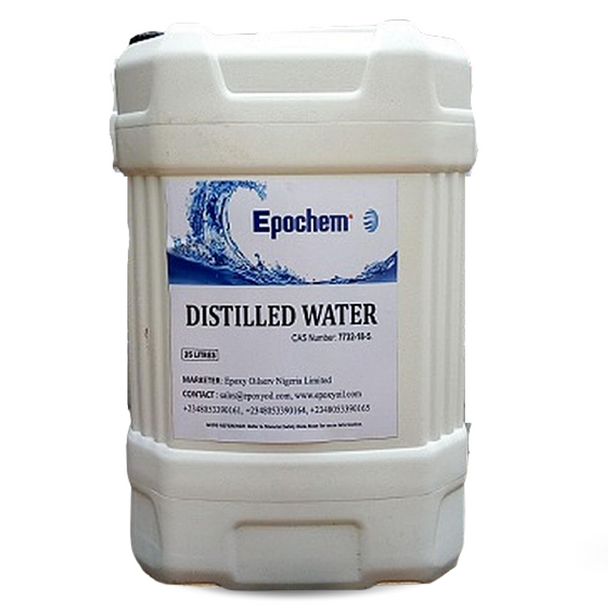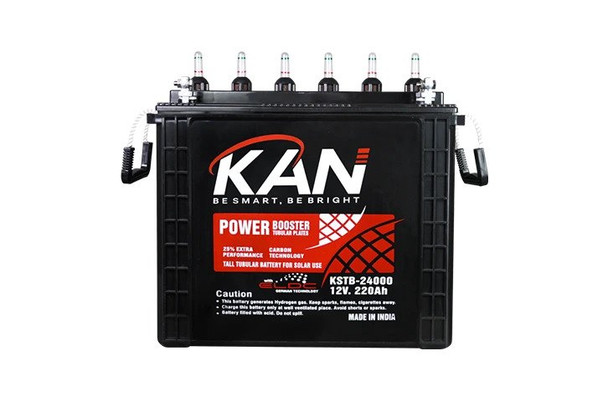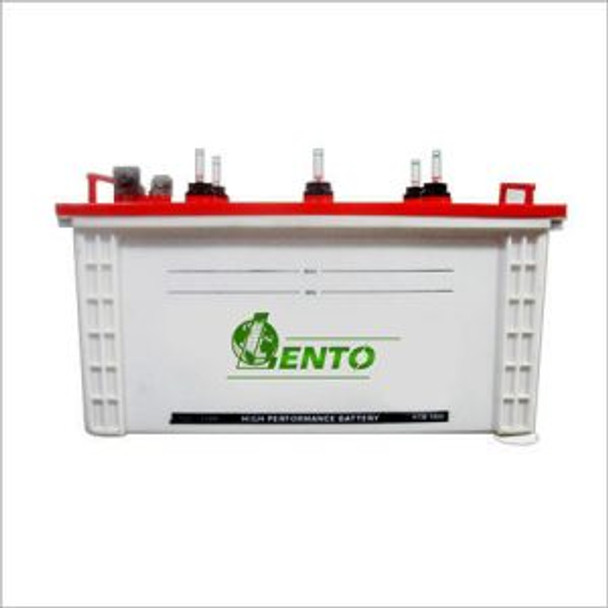Why Use Distilled Water For Inverter Battery
Introduction
Inverter batteries are essential for uninterrupted power supply, especially in areas prone to frequent power outages. Proper maintenance of these batteries is crucial for their efficiency, longevity, and performance. One key aspect of inverter battery maintenance is ensuring the electrolyte levels are maintained using the right type of water. While some may assume that regular tap or purified water is sufficient, distilled water is the best choice for refilling inverter batteries.
Using distilled water helps prevent mineral buildup, corrosion, and chemical reactions that can reduce the battery’s lifespan. Understanding why distilled water is recommended over other water types will help you maintain your inverter battery effectively and ensure optimal power backup performance.
This article explores why distilled water is preferred, its benefits for battery maintenance, and the potential issues associated with using non-distilled water.
Read more... Inverter Battery and Distilled Water: Frequently asked Questions
Key Takeaway
- Prevents Impurities & Contamination: Distilled water is free from minerals, salts, and impurities that could damage battery plates and affect performance.
- Enhances Battery Efficiency: Using pure water ensures smooth electrochemical reactions, leading to better energy storage and discharge efficiency.
- Prevents Sulfation & Corrosion: Minerals in regular water can lead to sulfate deposits on battery plates, reducing battery lifespan and performance.
- Extends Battery Life: Proper electrolyte levels with distilled water minimize wear and tear, increasing the overall durability of the battery.
Buy Online... Epochem Distilled Water 20 Liters
What is Distilled Water?
Distilled water is nothing but impurities-free water at its purest form. It is so pure that there won’t be even ions in the water. Because of this nature distilled water has many applications including to replenish inverter batteries, car batteries, medical applications (like mixing it with medicine at the time of injection), in aquarium fish keeping, biological laboratories, Aeroplane engines.
What are Inverter Batteries?
Inverter batteries are designed to provide a small amount of current consistently for longer durations of time. Inverter batteries are also known as deep Cycle batteries as they discharged over a much longer time. The Inverter Batteries consist of lower number of plates which are much thinner, and the electrolyte volume of the inverter batteries is more so that the chemical reaction takes more time to produce current. This makes Inverter Batteries to provide a consistent amount of current for extended periods.
Read more...Maintaining Inverter Batteries During Power Outages (Water Check)
Why Do We Use Distilled Water for Inverter Batteries?
Let’s assume that regular water is added to an inverter battery, the water that we drink every day. This water has a lot of ions in it and when it is poured into the inverter, it clogs the electrodes. Slowly, over time, the ions form a layer on them. Finally, the chemical reaction that makes the battery work is obstructed and no current is generated. If simple tap water is used, it will not only have ions but also dust particles and other organic material. This hampers the chemical reaction taking place inside the battery even further. Thus, the only way to ensure that an inverter battery works seamlessly and smoothly is to use water without impurities, i.e., distilled water.
Buy online Kan inverter battery suitable for distilled water
Comparison of Water Types for Inverter Battery Maintenance

The Importance of Battery Maintenance
Battery Longevity and Efficiency:
- Longevity: Proper maintenance, including the use of distilled water, can significantly extend the life of inverter batteries, reducing the need for frequent replacements.
- Efficiency: Regular maintenance ensures that the battery operates at optimal efficiency, providing reliable power backup when needed.
Role of Water in Inverter Batteries:
- Inverter batteries, particularly those that are lead-acid types, require water to facilitate the electrochemical reaction that produces electricity.
- The water level in the battery cells needs regular monitoring and replenishment to maintain the necessary chemical balance and ensure proper functioning.
Why Distilled Water is Crucial
Purity Matters:
- Conductivity: Pure distilled water contains no additional minerals or impurities. These substances can introduce unwanted conductivity within the battery, leading to self-discharge or even short-circuits.
- Mineral Build-up: Tap water and other non-distilled water sources often contain minerals like calcium and magnesium. When used in batteries, these minerals can precipitate and accumulate on the battery’s internal plates, reducing its efficiency and lifespan.
Chemical Stability:
- No Chemical Reactions: Distilled water does not contain ions or minerals that might react with the electrolyte in the battery. This stability is crucial to maintain the chemical integrity of the battery’s internal environment.
When To Add Distilled Water in Inverter Battery
There is an inverter battery water level indicator on top of batteries. Check for the indicator. There are multiple indicators, if any of the indicator water levels drops below the threshold limits you need to replenish the water in that container. It is always good to have smartphone remainder at regular interval of time and keep checking it.
Buy Online... Lento Tubular Battery 220ah 12v
Specific Benefits of Using Distilled Water for Inverter Batteries
Maximizing Electrolyte Effectiveness:
- Optimal Electrolyte Function: Distilled water ensures that the electrolyte within the battery maintains its required concentration and purity, crucial for the optimal chemical reactions needed to store and release electricity efficiently.
- Prevention of Electrolyte Contamination: Using distilled water prevents the introduction of external impurities into the electrolyte, which can degrade its quality and reduce battery performance.
Enhancing Battery Life and Performance:
- Reduction in Plate Sulphation: Impurities in non-distilled water can accelerate the sulphation of the battery plates, a process where lead sulfate crystals form on the plates and are not converted back into active material. This condition permanently reduces the battery’s capacity and lifespan.
- Uniform Performance: Pure water contributes to the uniformity of the electrolyte’s acid concentration across all cells, promoting balanced charging and discharging cycles, thereby enhancing overall battery performance.
Potential Risks of Using Non-Distilled Water
Mineral Deposits and Corrosion:
- Plate Corrosion: Minerals found in non-distilled water, such as iron and calcium, can lead to the corrosion of internal plates and other critical components within the battery.
- Clogging and Reduced Capacity: Over time, mineral deposits can clog the pores in the plates, obstructing the internal flow of ions and leading to a noticeable decline in battery capacity and output.
Accelerated Self-Discharge:
- Increased Conductivity: The presence of salts and minerals in non-distilled water increases the water's conductivity. This can lead to increased self-discharge rates, where the battery loses its charge more quickly even when not in use.
Chemical Reactions:
- Adverse Reactions: Certain minerals and ions commonly found in tap water can react chemically with the electrolyte, altering its acidity and concentration, which detrimentally affects the battery's ability to charge and discharge efficiently.
Maintaining Your Inverter Battery with Distilled Water
Regular Maintenance Tips:
- Regular Water Level Checks: Ensure that the water level is checked at least monthly. The water should cover the plates entirely but must not reach the level of the overflow vent.
- Proper Filling Technique: When adding water, use a clean funnel and container to prevent introducing new contaminants. Fill slowly to avoid overfilling, as this can cause leaks and potentially dangerous spills.
Ideal Conditions for Battery Storage:
- Temperature Considerations: Store batteries in a cool, dry place to minimize the rate of water loss and chemical degradation.
- Avoid Direct Sunlight: Prolonged exposure to sunlight can heat the battery, accelerating water evaporation and increasing the frequency of refills.
This detailed discussion provides a deeper understanding of the critical role distilled water plays in maintaining inverter battery health, enhancing their efficiency, and prolonging their operational lifespan. Up next, we will conclude with some practical FAQs to assist users in managing their inverter batteries more effectively, followed by a call to action to explore more at GZ Industrial Supplies
Here are a few additional tips on inverter battery maintenance;
Clean your Battery First
- Always wear safety glasses and rubber gloves when working with batteries
- Make sure the battery caps are on tightly
- Use a solution of baking soda and water (1 cup baking soda per gallon of water)
- Rinse solution off of battery terminals - do not allow this solution to enter the battery
Check the Electrolyte Level of Each Battery (every one to two weeks)
- Batteries should always be filled after a full charge, unless they are 'dry' and the plates are exposed. In that case, fill with just enough water to reach the top of the plates, this is considered the minimum level of water.
- Once the batteries have a full charge, check and add water if needed
- Only add water if necessary - the water level should be 1/8″ below the bottom of the fill well
Fill the Batteries
- Add water until the electrolyte level is 1/8″ below the bottom of the fill well.
- Do not overfill batteries. Overfilling batteries and then charging can cause the batteries to bubble over and spill the electrolyte solution. Not only is this messy, it can be harmful if this solution is not properly rinsed from the skin.
Replace the Battery Caps
- Clean up any spills around the battery cells
- Be sure not to allow any additional debris to enter the battery
- Replace the battery caps back onto the batteries.
- Use only distilled water - for the reasons above.
For more ideas on inverter battery maintenance, read Inverter Battery Maintenance: The Importance of Distilled Water
Where to buy distilled water for inverter batteries?
Many leading and experienced inverter battery manufacturers and experts recommended to use distilled water for maintaining impeccable performance and longer battery life. You could buy distilled water from GZ Industrial Supplies. Click here to buy Distilled Water For Inverter Battery.
GZ Industrial Supplies: A top supplier offering a wide selection of quality distilled water across Nigeria, ensuring quick delivery and professional advice.
You can buy the best distilled water in Nigeria from the offices below:
GZ Industrial Supplies Ikeja
18 Adesina Street, Off Obafemi Awolowo Way,
Ikeja, Lagos.
Tel. +234 8181069339, +234 7031515985, +234 8060907072
WhatsApp: +234 8181069339
GZ Industrial Supplies Lekki
Suite 10, Olive Plaza by Osapa London Bus Stop,
Lekki, Lagos
Tel. +234 8181069339, +234 8053390169 +234 8060907072
GZ Industrial Supplies Apapa
10 Apapa Oshodi Expressway, Coconut Bus stop Opposite Total Jetty,
Apapa, Lagos
Tel. +234 8181069339, +234 7031515985, +234 8060907072
GZ Industrial Supplies Port Harcourt
238 Aba Road, Onyejieke’s Plaza beside Fidelity Bank,
Rumuogba, Port Harcourt.
Tel. +234 8181069339, +234 8053390169 +234 8060907072
GZ Industrial Supplies Calabar
30/32 Ndidem Usang Iso Road,
Marian, Calabar.
Tel. +234 8181069339, +234 8053390169 +234 8060907072
GZ Industrial Supplies ABuja
Shop 016, Zitel Plaza, Plot 227 P.O.W. Mafemi Cres. Utako, Abuja
Tell. +234 8053390161,+234 9121740191
GZ Industrial Supplies Ogba
79 Yaya Abatan, by College Road
Ogba, Lagos
Tel. +234 8181069339, +234 8053390169 +234 8060907072
Distilled water is essential for running the inverter batteries for the long term. Epochem Distilled water is the perfect product for good maintenance of your inverter batteries. Epochem Distilled water is purified water without salts and impurities, macro and micro elements and without harmful additives. It has no heavy metals, bacteria or viruses, now you know why Distilled eater is used for inverter battery.
Available for Pickup...Epochem Distilled Water 20 Liters
Related Articles
How Distilled Water Powers Up Your Inverter Battery
The Ultimate Guide to Choosing the Best Inverter Batteries in Nigeria
How To Store Inverter Battery When Not In Use
Frequently Asked Question
1. Why do we use distilled water in an inverter battery?
Distilled water is used in an inverter battery because it is free from impurities and minerals that could interfere with the battery’s chemical reactions. Using regular or mineral water can introduce contaminants that may hinder battery performance, cause corrosion, and reduce its lifespan. To ensure smooth and efficient operation, always use pure distilled water in your inverter battery.
2. What happens if you don't use distilled water in a battery?
If you use tap water instead of distilled water in a battery, the minerals and contaminants present in it can accumulate on the battery plates and clog the pores. This buildup reduces the battery's efficiency, forcing it to work harder and generate more heat. Over time, this leads to faster wear and tear, increased corrosion, and a shorter battery lifespan. To maintain optimal performance and longevity, always use pure distilled water in your battery.
3. Which water is best for an inverter battery?
Distilled water is the best choice as it is free from impurities. Deionized water is also a good alternative since it lacks harmful ions that could cause corrosion.
4. What happens if you use normal water in an inverter battery?
Normal water contains minerals and impurities that can damage the battery plates, reduce efficiency, and cause corrosion. Instead of aiding performance, it disrupts the chemical balance, leading to faster wear and a shorter battery lifespan. Always use distilled or deionized water for optimal battery health.
5. Can we use boiled water in an inverter battery?
No, boiled water still contains minerals that can damage battery cells. Only distilled water is completely free of impurities, making it the safest choice for battery maintenance.
Conclusion
Using distilled water in inverter batteries is not merely a recommendation—it is essential for maintaining the battery's health and functionality. Distilled water aids in ensuring that the electrolytic balance is maintained, prevents the buildup of harmful deposits, and avoids the premature degradation of the internal components. As we move towards a more energy-conscious world, understanding and implementing these maintenance practices can significantly impact the efficiency and lifespan of inverter batteries.
For more tips on battery maintenance and to explore a wide range of high-quality inverter batteries, visit GZ Industrial Supplies. At GZ Industrial Supplies, we offer products and expert advice to ensure your power solutions are efficient and long-lasting. Whether you need assistance selecting the right inverter battery or finding accessories for your power setup, our team is here to help. Enhance the longevity and performance of your inverter batteries with distilled water and professional guidance from GZ Industrial Supplies. Visit us today!
Recent Posts
-
The Best Electrical Wire in Nigeria 2025 (Updated)
Introduction Electrical wires are the basic unit of every electrical system. Electrical wires a …Apr 14, 2025 -
What are Agricultural Machinery
Introduction Agricultural Machinery is also used to improve the wide range of production practi …Apr 14, 2025 -
DIFFERENT TYPES OF WATER PUMP AND THEIR APPLICATION
Introduction There is a wide variety of water pumps available to suit many different purposes a …Apr 11, 2025






